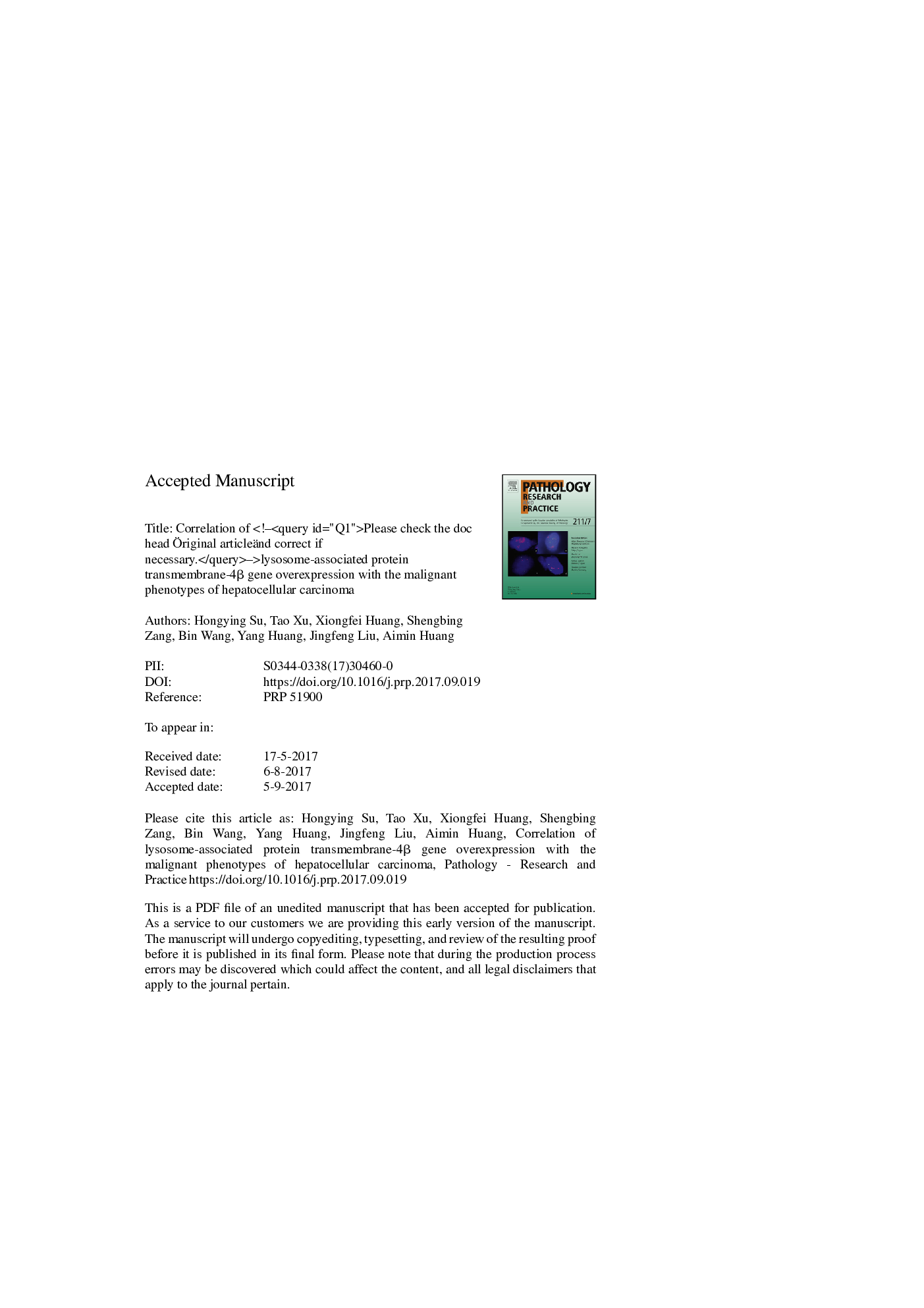| Article ID | Journal | Published Year | Pages | File Type |
|---|---|---|---|---|
| 8458389 | Pathology - Research and Practice | 2017 | 31 Pages |
Abstract
Hepatocellular carcinoma (HCC) is one of the most common and rapidly fatal malignancies, for which hepatitis B virus (HBV) chronic infection constitutes a major risk factor. The lysosome-associated protein transmembrane-4 β gene (LAPTM4B) is a recently identified gene that was found to be overexpressed in several types of cancer. However, the role of LAPTM4B in HCC tumorigenesis and progression has not been clearly determined. The present study demonstrated that the mRNA as well as the protein levels of LAPTM4B were significantly upregulated in HCC specimens. Patients with higher levels of LAPTM4B mRNA in their HCC tissues tended to be of a younger age, HBsAg+, with an advanced Barcelona Clinic Liver Cancer stage. Moreover, LAPTM4B mRNA expression was positively associated with serum α âfetoprotein levels. We also observed that LAPTM4B was able to promote HCC cell proliferation, migration and invasion in vitro. In conclusion, our results indicated that LAPTM4B plays an important role in the promotion of hepatocarcinogenesis and cancer progression and may serve as a biomarker for the diagnosis and monitoring of HCC.
Related Topics
Life Sciences
Biochemistry, Genetics and Molecular Biology
Cancer Research
Authors
Hongying Su, Tao Xu, Xiongfei Huang, Shengbing Zang, Bin Wang, Yang Huang, Jingfeng Liu, Aimin Huang,
